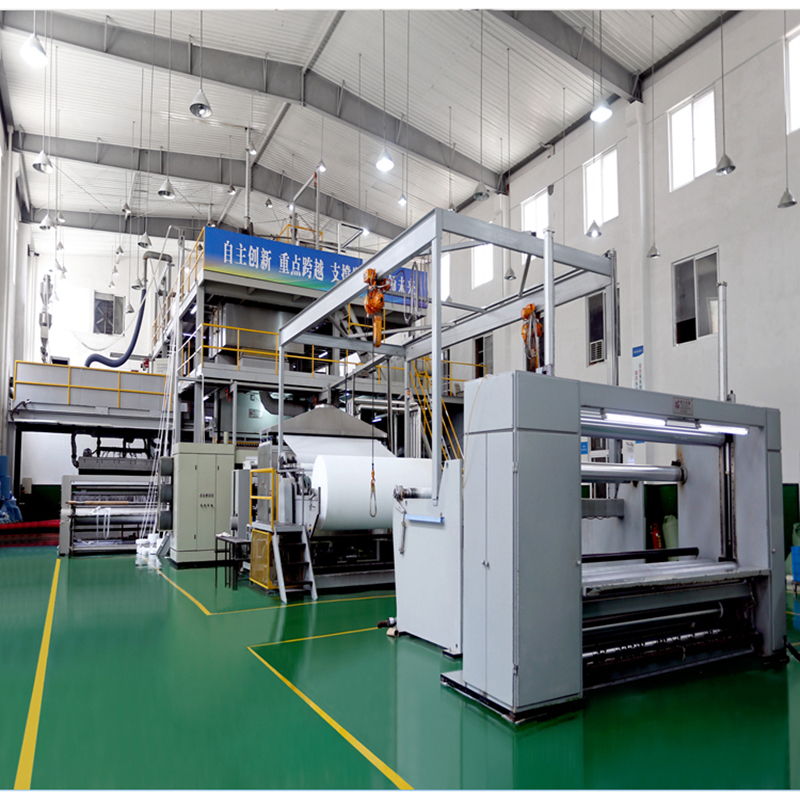Fabric-making machines adapt to produce specialized fabrics like technical textiles or performance fabrics through several means:
Customized Machinery Settings: Fabric-making machines can be adjusted to accommodate specific parameters required for specialized fabrics, including tension, speed, and weaving patterns.
Specialized Yarns and Fibers: Machines can handle specialized yarns or fibers, such as high-performance synthetics or blends, designed for technical textiles to meet specific requirements like strength, durability, or moisture-wicking properties.
Incorporation of Coatings or Treatments: Fabric-making machinery can integrate coatings, laminations, or treatments during the production process to impart properties like water resistance, flame retardancy, or antimicrobial features.
Advanced Weaving or Knitting Techniques: Machines utilize advanced weaving or knitting techniques, such as multi-axial weaving or warp-knitting, to create complex structures and designs suited for technical textiles.
Precision Dyeing and Finishing: Machinery incorporates precise dyeing and finishing processes tailored to meet the requirements of technical textiles, ensuring colorfastness and enhanced performance properties.
Integrating Reinforcements or Functional Elements: Fabric-making machines can integrate reinforcements like aramid fibers, carbon fibers, or conductive elements into the fabric structure for specific functionalities, such as strength or conductivity.
Adapted Stitching or Bonding Methods: For performance fabrics, machines may employ specialized stitching, bonding, or laminating methods to create seams or join layers while preserving the fabric's properties.
Innovative Materials Handling: Machines are equipped to handle delicate or high-tech materials with care to avoid damage and ensure the integrity of the specialized fabric during production.
Quality Control Measures: Rigorous quality control checks throughout the production process ensure that technical textiles meet stringent standards and performance specifications.
Integration of Smart or Functional Elements: Some fabric-making machinery is equipped to incorporate smart features, such as sensors or conductive threads, into technical textiles for applications like wearable technology or smart textiles.
By incorporating these methods and adaptations, fabric-making machinery can cater to the specialized requirements of technical textiles and performance fabrics, ensuring they meet the demanding standards of various industries such as aerospace, healthcare, sports, and protective wear.
What are the considerations when selecting fabric-making machinery for a particular fabric production facility?
Selecting fabric-making machinery for a production facility involves several critical considerations to ensure optimal performance and efficiency:
Production Requirements: Understand the specific fabric types, quantities, and quality standards required by the facility. Consider the desired output capacity and flexibility to meet varying demands.
Fabric Type and Complexity: Choose machinery that suits the intended fabric types, whether natural fibers,
fabric making machine synthetics, technical textiles, or specialty fabrics, and can handle the complexity of weaving, knitting, or finishing required.
Technology and Innovation: Evaluate the machinery's technological advancements, including automation, digital controls, and integration with smart features, ensuring compatibility with current and future industry trends.
Space and Layout: Consider the available space in the facility and the layout requirements for the machinery setup, ensuring proper workflow, accessibility, and safety compliance.
Budget and Cost Efficiency: Assess the initial investment cost, maintenance expenses, energy consumption, and overall cost-effectiveness of the machinery over its lifespan.
Compatibility and Integration: Ensure compatibility with existing equipment, software systems, and production processes to facilitate seamless integration without major disruptions.
Quality and Performance: Prioritize machinery known for reliability, consistent quality output, precision, and adherence to industry standards. Consider the track record and reputation of the manufacturer.
Customization and Adaptability: Choose machinery that allows for customization and adjustments to meet specific production needs, including fabric weights, patterns, finishes, or technological advancements.
Training and Support: Assess the availability of comprehensive training programs and technical support from the manufacturer to ensure operators are proficient in operating and maintaining the machinery.
Sustainability and Compliance: Consider machinery that aligns with sustainability practices, energy-efficient operations, and compliance with environmental regulations.
Warranty and Service Agreements: Review warranty terms and service agreements offered by the manufacturer to ensure adequate coverage and support for maintenance and repairs.
Future Expansion and Upgrades: Evaluate the potential for future expansion or upgrades to meet evolving market demands and technological advancements.
By carefully considering these factors, fabric production facilities can make informed decisions when selecting fabric-making machinery, ensuring efficient operations, high-quality output, and long-term success in the textile industry.

